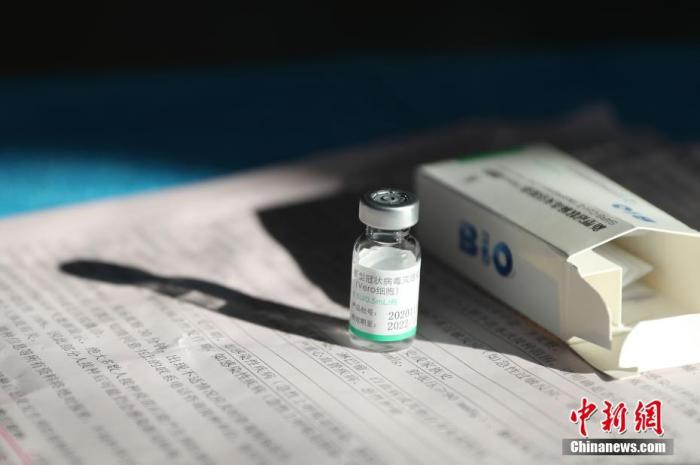(Fighting against New Coronary Pneumonia) Canada will allow entry of passengers vaccinated with Sinopharm and Kexing vaccines
China News Service, Toronto, November 20 (Reporter Yu Ruidong) In response to changes in the epidemic situation, the Canadian federal government announced on November 19 that it will further adjust border measures.
Starting from November 30, Canada will expand its list of approved new crown vaccines for inbound travelers to include China's Sinopharm and Sinovac vaccines.
The data picture shows the new crown vaccine produced by China National Pharmaceutical Group taken by reporters in Beijing.
Photo by China News Agency reporter Jiang Qiming
Canadian officials said that the updated list is intended to match the World Health Organization's emergency use list of new crown vaccines.
The newly accepted vaccines in Canada also include the COVAXIN vaccine developed by India's Bharat Company.
This means that international travelers who have been vaccinated with the full dose of the new crown vaccine for 14 days will be recognized when they enter Canada.
Since September 7 this year, Canada allows international travelers who have been fully vaccinated with four officially recognized new crown vaccines to enter, including Pfizer, Modena, AstraZeneca and Johnson & Johnson vaccines.
The Canadian government also announced that starting from November 30, Canadian citizens and permanent residents who have been fully vaccinated and have the right to enter will no longer have to present their pre-entry virus molecular test certificates when they re-enter within 72 hours after leaving Canada.
All travelers who have left the country for more than 72 hours must present a virus molecular test certificate when they re-enter Canada.
Starting from January 15, 2022, certain groups of travelers who are currently exempted from relevant entry requirements must be fully vaccinated before they can be allowed to enter Canada.
These groups include: individuals traveling to reunite with their families, international students over 18 years of age, professional and amateur athletes, individuals with valid work permits, and certain “necessary” industry practitioners.
Canadian officials also emphasized that according to the plan, starting from November 30th, vaccinations for the new crown are required for travel within Canada or across borders.
In principle, viral molecular testing certificates will no longer be accepted as a substitute for vaccination certificates.
The Canadian government stated that it will continue to make appropriate adjustments to border measures and will consider further adjustments to the pre-entry virus testing requirements for people who have been vaccinated in the subsequent stages.
The Canadian government is also studying follow-up measures to reopen more Canadian airports to receive international passenger flights.
(over)

